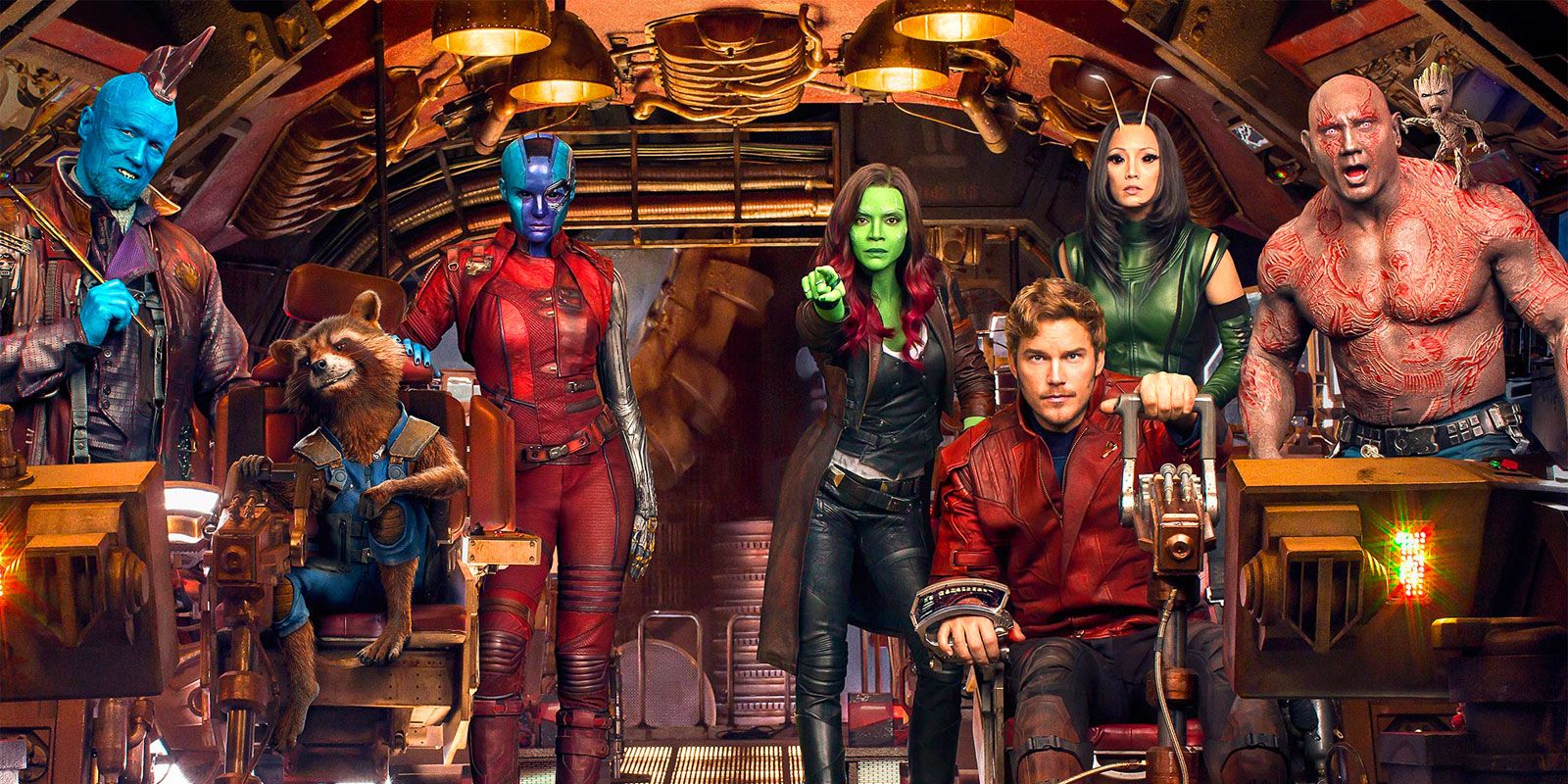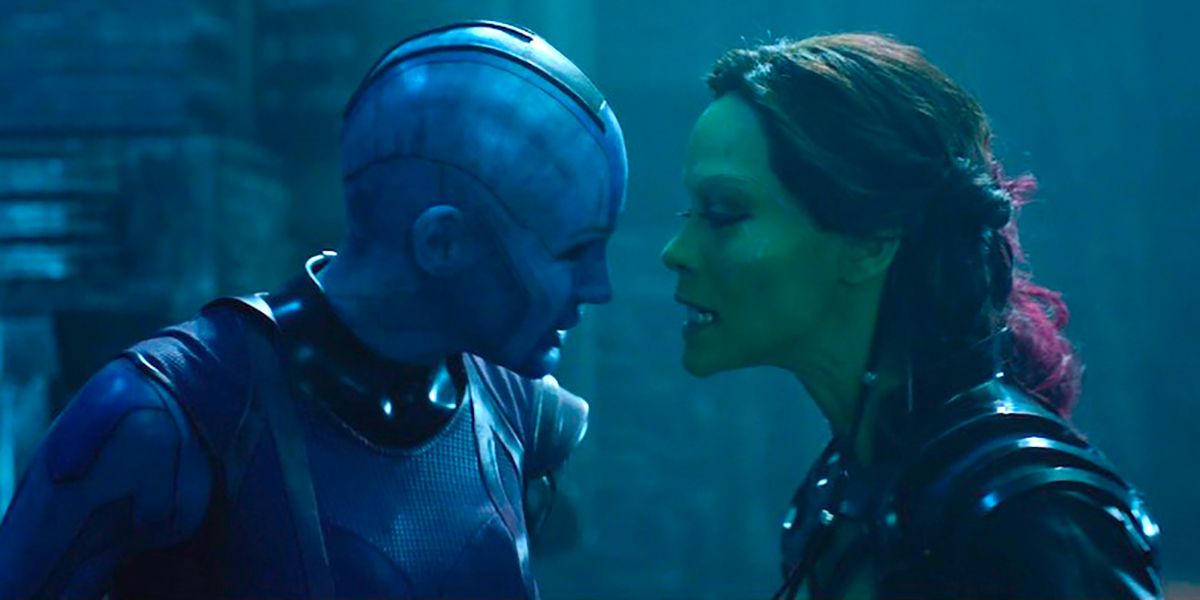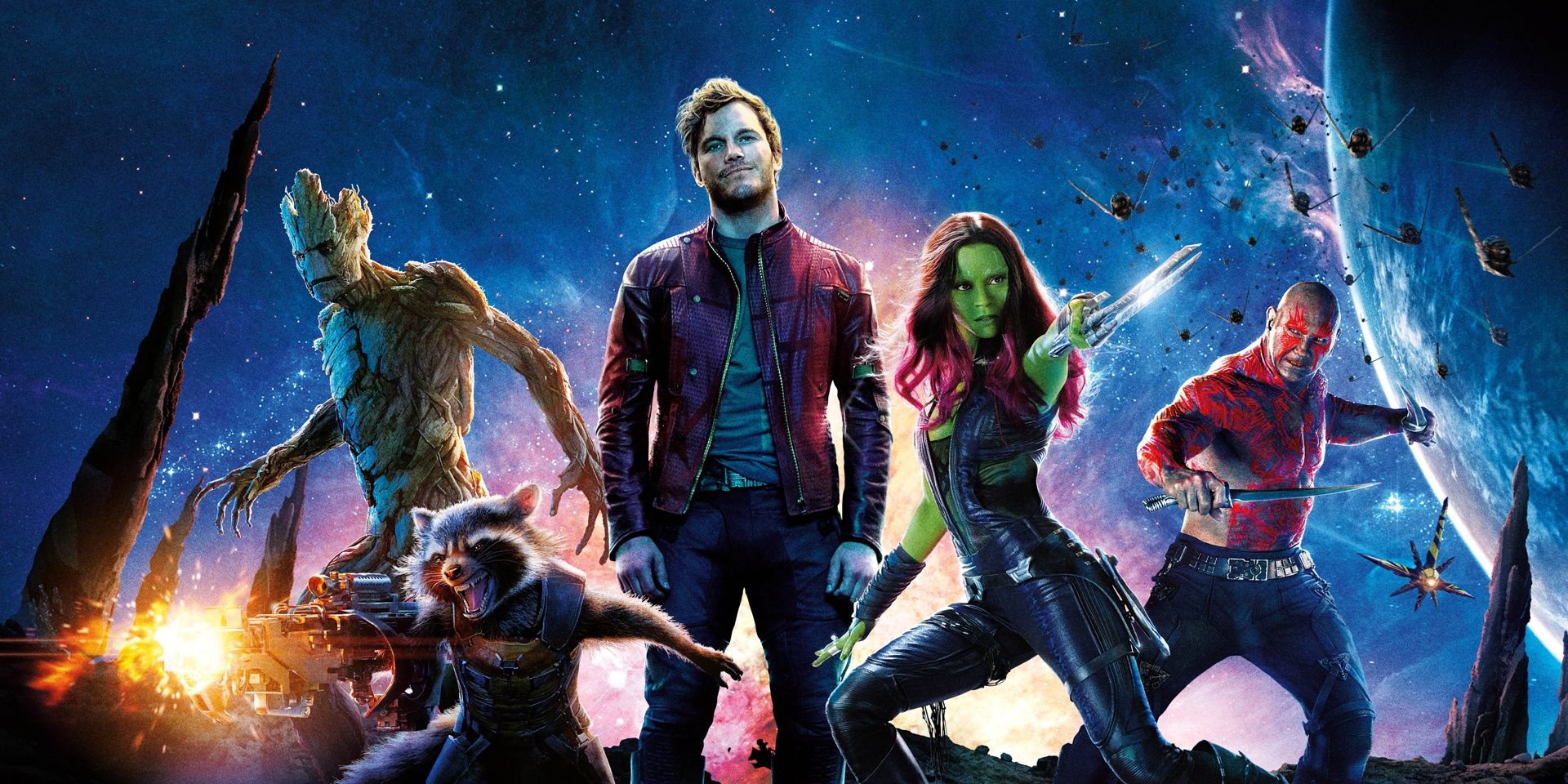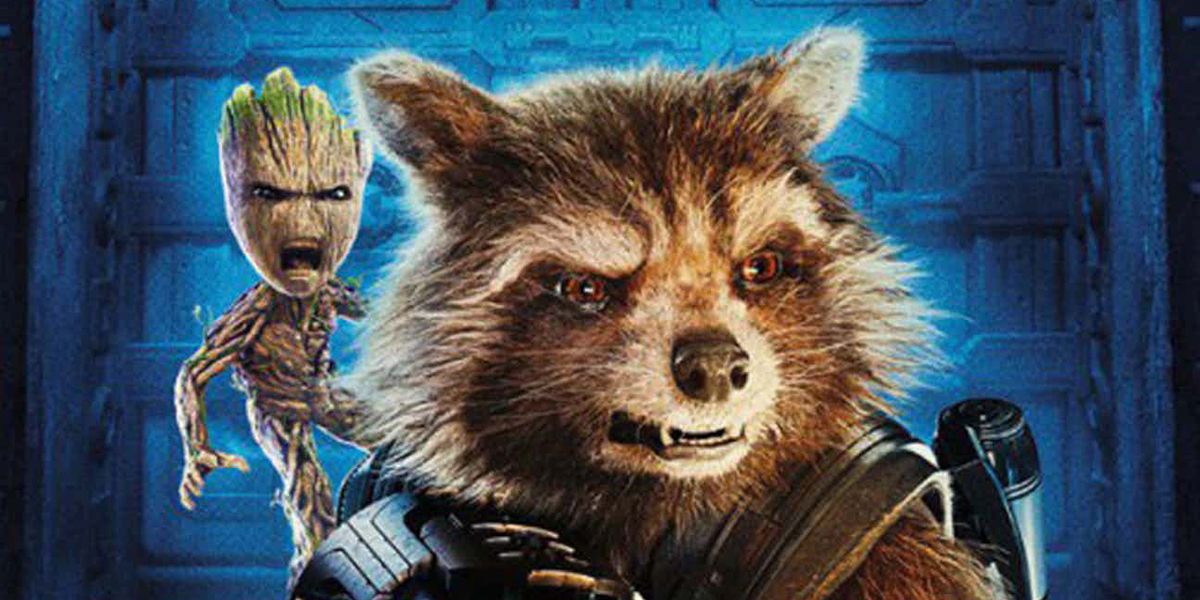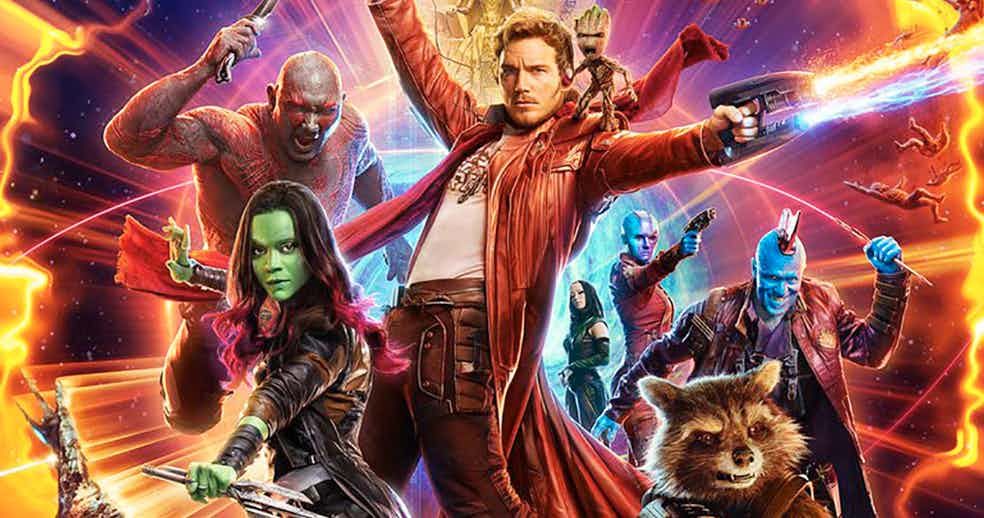James Gunn seems to be Marvel Studios' golden boy these days, not just as a director who's raking in critical and financial success, but because of what he's cultivating as a creative engine. When Jon Favreau reignited comic book movies with 2008's "Iron Man," few envisioned how extensively the Marvel Cinematic Universe would take shape. We were still some way off from actually seeing the Avengers form on screen, let alone a Marvel adventure that extended its reach deep into the cosmos. In six years time, however, Gunn would breath life into a "Guardians of the Galaxy" film, a move that was seen as a big risk at the time, but ended up redefining the entire scope of Marvel's movies.
RELATED: James Gunn Explains the ROM: Spaceknight ‘Problem’
Judging from the early reception to "Guardians of the Galaxy: Vol. 2" and the studio's eagerness with him to extend the franchise, he's earned a ton of trust from Marvel. After all, the Guardians aren't just your ordinary comic book property; it's a galactic giant.
George Lucas changed the sci-fi/space fantasy genre forever with his tale of the Skywalkers, the Empire and a battling Resistance. Gunn's "GotG" was most definitely influenced by the road Lucas forged, his original, non-formulaic and grand approach to storytelling stemming form the same mold as Lucas' epic. And while it wasn't built from scratch to the extent "Star Wars" was, there are similar parallels to be drawn in how Gunn planted his own cosmic seeds, watered them and grew them into, well, talking trees.
Is Gunn A Visionary? Yes.
Lucas' "Star Wars" movies had a flair to them that Hollywood had never before seen, popcorn flicks designed for the entire family. Gunn perfumed a is liar feat, but with an added pressure of living up to the Avengers-centric hits Marvel Studios was turning out. Writers Dan Abnett and Andy Lanning revamped Marvel's cosmic comic book line around 2008, an extended storyline heavily involving the Guardians. But despite great reviews and strong initial sales, interest eventually waned, titles were cancelled, and characters splintered off into other books, or were placed on ice. It was inevitable that a cosmic film would be needed when Joss Whedon unveiled Thanos in 2012's "The Avengers," but it was surprising that after the comics couldn't sustain them as popular figures, the Guardians were tapped to helm an entire movie. Now, as the team is poised to team-up with Earth's Mightiest Heroes in "Infinity War," they'll be entering the epic as equals in the eyes of audiences, not back-up players.
Gunn took the Guardians, built it into a franchise from the ground up, and laid down a powerful creative blueprint. This is most easily seen in the look of the film, which is now passing down its influence just like Lucas' once did. "Thor: Ragnarok" seems to be drawing from Gunn's color palettes and visual aesthetic, for example. Outside o f the Marvel realm, the same can be argued for the big screen adaptation of "Valerian and the City of a Thousand Planets," the trailer for which appears to marry director Luc Besson's signature style with a bit go Gunn's "GotG" flair.
Gunn also made music a distinct character and a personality in his Marvel movies, another creative development "Ragnarok" has seemingly adopted, as did Netflix's "Luke Cage" and, to an extent, "Logan." Gunn taught his audiences about the importance of audio ambience, one which used a decidedly retro-soundtrack to help immerse us in a galaxy far, far away.
A Free Rein to Create
The "Star Wars" franchise was a commercial success for 20th Century Fox, who distributed what Lucasfilm Ltd. produced. Despite having that corporate backing, however, Lucas was free to tell his story, his way. He tweaked as he went along, mapping out Luke Skywalker's rebellion against the Emperor and Darth Vader, and at day's end, it was all his narrative. Gunn appears to have a similar amount of freedom to craft his Marvel films as he sees fit. That he was given control to write and direct the second chapter of Star-Lord's team, and will be doing the same for the third film shows that Marvel Studios president Kevin Feige trusts Gunn to do his thing. In fact, Marvel wants him beyond the contracted three "GotG" films, which would put him right up there with the Russo Bros., who did two "Captain America" movies and are currently focused on "Avengers: Infinity War."
Considering he's described his "GotG" story as a trilogy, Gunn is likely envisioned as someone who's contributions are wanted outside of this franchise. Favreau did two "Iron Man" films, but left on a tense note, even though he still maintained his MCU role as Happy Hogan. Whedon left after a pair of Avengers films, citing burnout and a needed break from blockbuster filmmaking (although he has since been lined up for "Batgirl"). Gunn, on the other hand sings a different tune, and seems to be in sync with the studio. He's even hinted at switching up the Guardians roster in the future, which just shows that he is already looking at doing things differently to keep his game fresh. You can tell his creative freedom is keeping him happy, evolving -- and right where Feige needs him.
It's That Human Touch
In 1973, Lucas' was first recognized for his work directing and co-writing the retro-looking "American Graffiti." While "Star Wars" was an entirely different animal, it had a similar vein of comedy and a coming-of-age vibe. It may have been a different genre, but if you followed his earlier work, you could tell that the narrative, dialogue and overall essence was all Lucas.
The same holds true for Gunn, whose most prominent work before "Guardians" was the sci-fi horror flick "Slither," and a decidedly not family-friendly superhero tale "Super." Both were dark comedies but with intense action, and both offered a glimpse of what the filmmaker would evolve into with his Marvel Studios debut.
At Marvel, Gunn continued his humor-filled route, tilting the balance of what was done with "Iron Man," and recalibrating to the point that his first Guardians flick felt much more like a comedy, with plenty of action packed in. Star-Lord's portrayal by Chris Pratt was a convincing combination of relatable human and action hero, with more than a dash of humor. Drax, Rocket Raccoon, Gamora and Groot also built the movie's atmosphere of laughter, which turns at the drop of a hat into high-intense spectacles and feverish action sequences. And the fact that Gunn managed to craft a friendship between a walking rodent with an attitude and gentle, walking tree with a three word vocabulary, giving both characters individual moments that touched the heart of audiences along the way, is nothing short of masterful.
Boldly Forging Marvel's New Frontier
In terms of space operas, "Star Wars" and "Star Trek" will always be the gold standard. With the arrival of Gunn's "Guardians of the Galaxy" movies, we suddenly have a full trifecta, a Top Three combination that other films will find tough to crack. And while the other two franchises have been brought back in play for modern audiences, Gunn can be proud that his Guardians was actually created in this era for this current generation.
Gunn's space saga is about bombastic battles, dashingly gorgeous heroes, cute creatures and amazing aliens, all residing in the crazy cosmic corner of the Marvel Cinematic Universe. It's not reinventing the wheel, merely updating and arguably improving on it. His team's exploring the galaxy, discovering its secrets and saving the world -- multiple worlds -- along the way. But this time, it's done with a different style - James Gunn's style.

